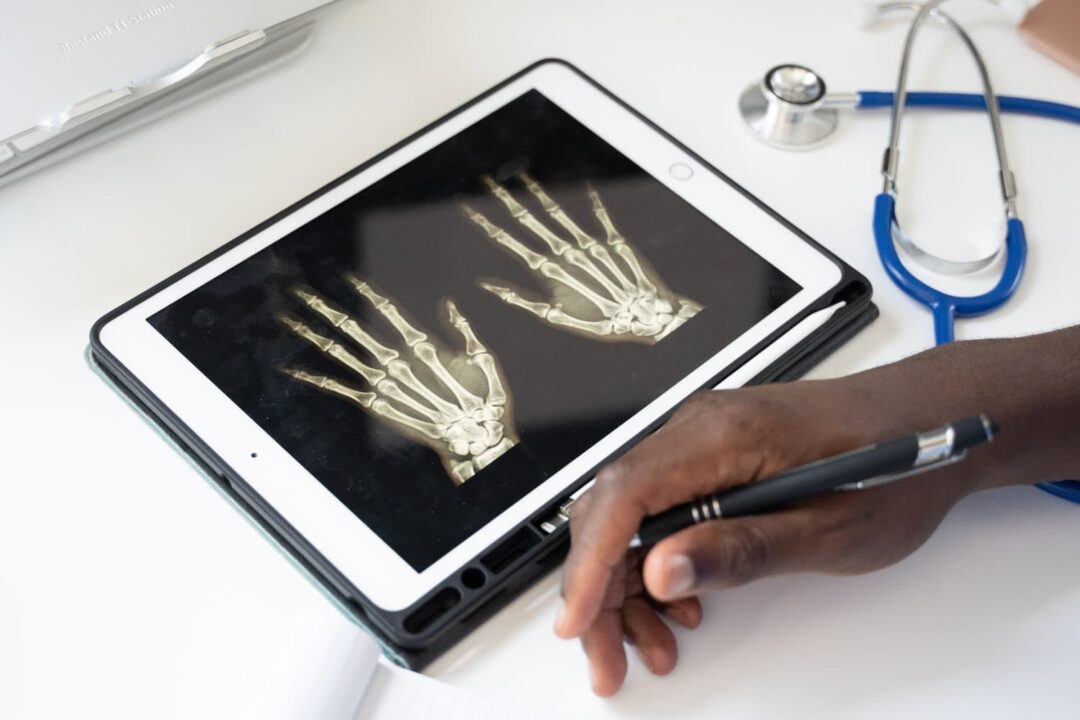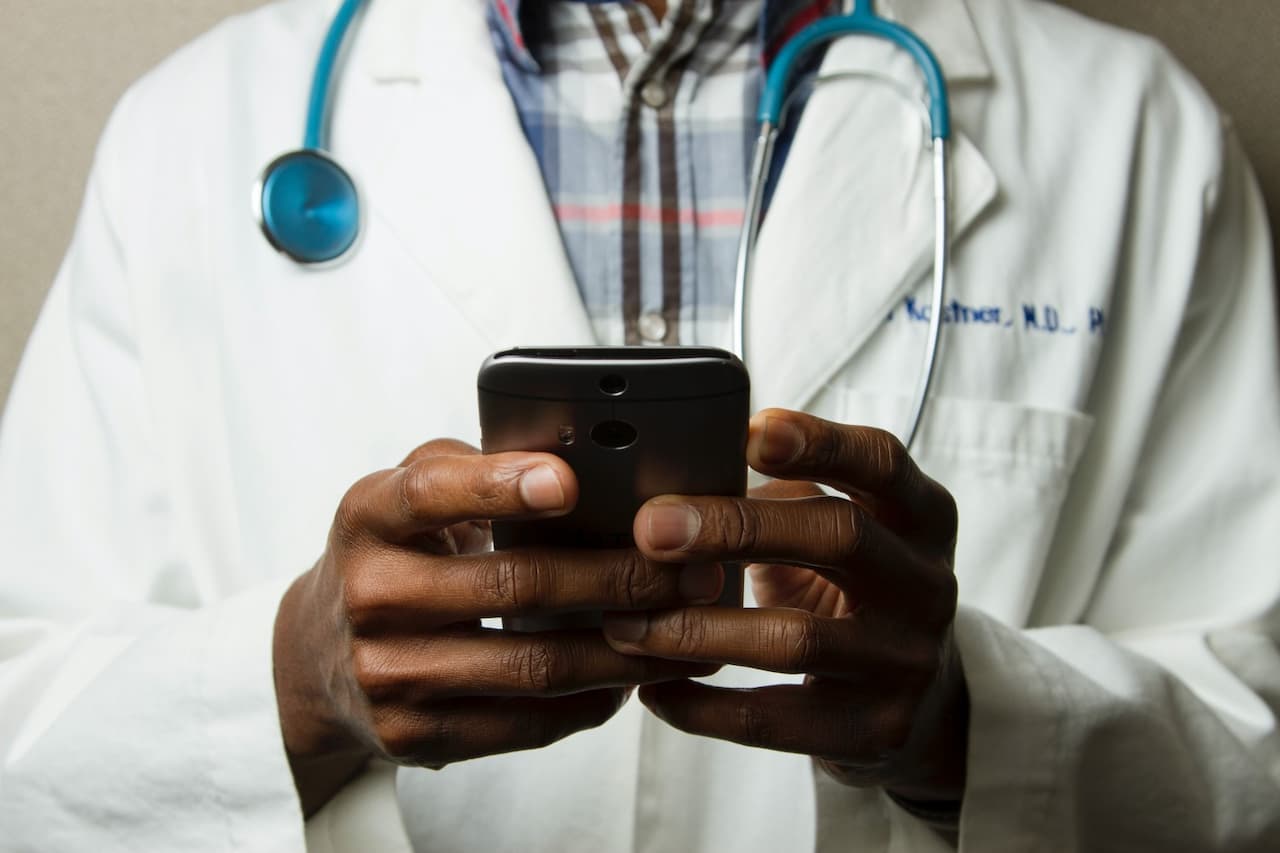In today’s modern era, mobile applications have become an integral component of our daily routines. They assist us in entertainment, work, communication, and, certainly, in tending to our well-being. Mobile applications in the realm of health are undergoing remarkable expansion and assume a pivotal role in enhancing the quality of healthcare and the well-being of individuals. Let’s delve into how mobile apps are revolutionizing the healthcare industry and the advantages they confer.
Convenience in Accessing Clinical Data
One of the principal manners in which mobile apps influence the healthcare domain is by affording users the convenience of accessing medical information at any time and from any place. Patients can effortlessly retrieve details concerning their ailments, therapies, prescription dosages, and medical professional recommendations by merely launching their mobile application.
Numerous healthcare apps also provide features for tracking symptoms, monitoring vital signs such as blood pressure and pulse rate, and preserving electronic health records. This renders healthcare data more readily available and user-friendly for individuals.
Telemedicine and Remote Consultations
Technology has made it possible for remote consultations with physicians through mobile applications. Patients can communicate with doctors, receive consultations, and even conduct video visits without leaving their homes. This is particularly important in cases where patients cannot physically visit a healthcare facility or require urgent consultation.
Telemedicine applications also improve access to medical care for people living in remote or underserved areas where medical resources are limited.
Health Tracking and Fitness Apps
Health tracking apps have become indispensable for those who monitor their physical well-being. They allow users to track physical activity, nutrition, sleep, and other aspects of a healthy lifestyle. Users can set goals, monitor their progress, and receive recommendations for improving their health.
For healthcare professionals, these data can also be valuable for diagnostics and treatment. They have the capability to obtain data regarding physical activity and other health metrics.
Medication Management
Mobile apps help patients manage their medications correctly. Users can set medication reminders, track dosages, and monitor interactions between drugs. This reduces the risk of errors and improves medication adherence, especially for long-term treatments.
Data Analysis and AI
The data collected from mobile healthcare apps can be used for analysis and disease prediction. Artificial intelligence (AI) plays a vital role in processing and analyzing this data. AI algorithms can assist doctors in identifying trends and disease risks, making it more efficient to prevent and treat patients.
Mobile healthcare applications have witnessed a surge in popularity due to their ability to revolutionize the healthcare industry. To illustrate their impact, let’s take a look at some remarkable success stories in the field:
- Ada Health: Ada Health is an AI-driven symptom checker that assists users in assessing their health conditions by asking a series of questions. It then provides personalized health information and recommendations. This app has empowered users to make informed decisions about their health and has even been used by healthcare professionals as a diagnostic tool.
- Oura Ring: Oura Ring is a wearable health tracker that monitors various health metrics, including sleep quality, heart rate, and activity levels. It has gained attention for its role in early COVID-19 detection, as changes in some metrics can indicate illness before symptoms appear. The data collected by Oura Ring has the potential to revolutionize how we track and respond to health crises.
Ensuring Data Security and Privacy
Discussing the role of mobile apps in healthcare would be incomplete without addressing data security and privacy. One of the most crucial aspects of using medical apps is the confidence that personal medical data will remain protected and inaccessible to unauthorized individuals.
Protecting Medical Data
Securing medical data is a top priority for developers of mobile healthcare apps. This includes:
- Data Encryption: Patient information, such as medical histories, test results, and prescriptions, must be securely encrypted during transmission and storage in mobile apps. Using protocols like TLS/SSL ensures data confidentiality during internet transmission.
- Access Control: User data should only be accessible to authorized users. Authentication mechanisms like passwords, PINs, or biometric data must be robust and secure.
- Audit and Monitoring: Maintaining audit and monitoring logs is essential to detect and respond to any suspicious activities, such as unauthorized data access.

Compliance with standards
Many countries have strict regulations and rules regarding the storage and processing of medical data. Developers of medical apps must be prepared to meet the following requirements:
- HIPAA (Health Insurance Portability and Accountability Act): Medical apps intended for the U.S. market must comply with HIPAA standards, ensuring the confidentiality and security of medical data.
- GDPR (General Data Protection Regulation): If an app operates in the European Union, it must adhere to GDPR regulations, guaranteeing user data protection.
- Compliance with Local Laws: Developers should also consider local laws and regulations concerning medical data storage and transmission.
Adhering to these measures not only strengthens data security but also establishes long-term trust relationships with users of medical apps.
Conclusion
As we look ahead, the future of mobile healthcare applications appears promising. Here are some exciting possibilities on the horizon:
Blockchain for Data Security: Blockchain technology holds the potential to enhance data security in healthcare apps. By providing a decentralized and tamper-proof ledger for medical records, it can ensure the utmost privacy and security for patients’ sensitive information. Patients will have more control over their data, and healthcare providers can access it securely when needed.
Machine Learning for Advanced Diagnostics: Machine learning algorithms are becoming increasingly proficient at analyzing vast datasets. In the healthcare sector, this means more accurate diagnostics and personalized treatment plans. Mobile apps can leverage machine learning to predict disease risks, recommend preventive measures, and even assist doctors in complex diagnoses.
These future prospects underscore the ongoing transformation of the healthcare landscape through mobile applications. With continuous innovation and adherence to robust security measures, mobile healthcare apps are poised to play an even more pivotal role in delivering quality medical care and improving overall health.
